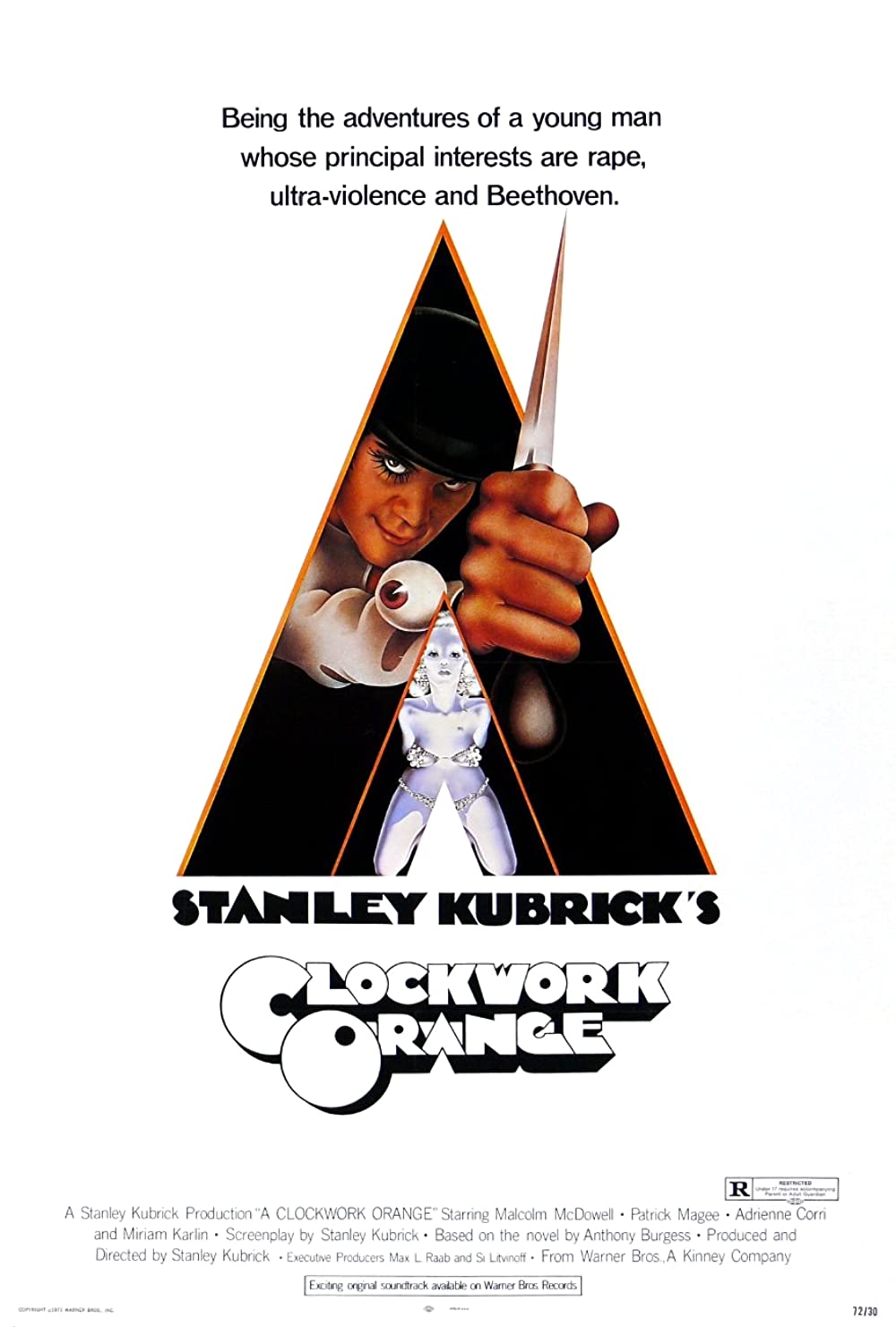Rating of
4/4
Kubrick's intense portrayal of human evil.
mdtinney - wrote on 09/27/09
For the entirety of his career, Stanley Kubrick was interested in one universal theme: mankind's decay, both mental and physical. This led to some of the most intense and frightening depictions of pure insanity, as seen in The Shining or Full Metal Jacket, but none as powerful and consistently relevant as the shocking A Clockwork Orange.The notorious trailer consisted of quick glimpses of some key scenes, with words such as "funny", "exciting" and "Beethoven" written on them. Only the third word is spot-on - the rest is, at best, an example of bitter irony. How come? Because the only one who could possibly find the events of this film funny or exciting is the deranged Alex DeLarge (Malcolm McDowell). He's intelligent and cheerful, with a soft spot for "the divine work of Ludwig Van", as he calls Beethoven, and enjoys hanging out with his friends. The problem is, his idea of spending time is best summed up by an expression he uses in the chilling opening sequence, where the camera catches his insane stare and goes backwards to reveal the bizarre pub he's visiting: "a bit of the old ultra-violence". He's never perfectly happy unless he can beat, rape or kill someone. Everything appears to change when he's sent to jail for murder and undergoes a treatment that makes him completely incapable to commit violent or perverted acts ever again. However, this "cure" is a double-edged sword, as it also means he can't defend himself when his victims come back for revenge.
It's the second section that constitutes the real heart of A Clockwork Orange. Much has been said about the film's use of on-screen violence and how it supposedly affected people upon its original release in 1971, and while it must have been a shock back then, most of the incriminated scenes look rather tame today. The notable exception is the famous brainwash sequence, which will probably never lose its sheer emotional power. That's because it represents Kubrick's real concern: the loss of free will, which will eventually turn all of us into mindless drones and lead to nothing but tragedy as with Kubrick's latrine shootout in Full Metal Jacket . The film was shot so that it would appear to be set in a not-so-distant future, but in a time where the media manipulate unsuspecting viewers and listeners every day, it is clear that the director saw it happening and tried to warn us. The use of violence was an inevitable part of this: the stronger the message, the more effective the reception.
This strength comes not only from the haunting images and the terrifying irony (Alex sings "Singin' In The Rain", the ultimate feel-good tune, while raping a woman), but also and most prominently from the groundbreaking central performance: McDowell, almost a complete unknown at the time (not to mention pushing 30, while Alex is supposed to be something like ten years younger), seized the opportunity and delivered a portrait of absolute, unmatched evil, so powerful it is sadly obvious why he hasn't done anything as astounding since. Anthony Hopkins may have won an Oscar for playing a serial killer, but it was McDowell who forever raised the bar for cinematic inhumanity.A Clockwork Orange is like any other film by Kubrick: it has to be seen multiple times before its full significance can be grasped, it will upset and infuriate some, and it's an experience like few others. For its unprecedented boldness as to content and delivery, it is also the great director's best picture.




